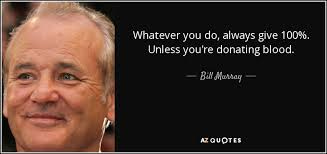EPISODE 321: HOW TO LIVE WHEN EVERYTHING IS AWFUL, SPONSORED BY DOVE SOAP, MISTER ROGERS, THE JUSTICE LEAGUE AND OUR LONG COLLECTIVE NIGHTMARE

POP CULTURE SPIRIT WOW
I spent most of the last newsletter trying to get you to watch a movie musical about a guy with really disturbing arms, meanwhile children are being taken from their parents by federal officials and left to live in cages, we're apparently going to be expected to say Space Force with a straight face (which is a great idea and definitely won’t inspire greater world anxiety and militarization of a part of the universe than none of us are actually capable of occupying), and Disney has backed off from making more of its "fill in the blanks" Star Wars movies (for now, only for now, he says, rocking himself gently).
Also, I realized I've been paying Amazon $120 a year for pretty much no good reason, the biggest movie out that is not animated makes tree houses so damn scary I will never go in one again, and hey, what’s this I hear about people playing soccer somewhere?
We’re still not out of June, and it seems like’s there the smell of something burning pretty much everywhere, but bring it on world. We didn’t get this far to just give up now.
++
So it’s been a bad week, is a thing you could use in a classroom as an example of understatement. It's maybe the worst week I’ve seen in the United States since the revelations of Abu Ghraib, and really, I think most of us would say this was worse, because it's happening here, and without any of the madness of war. This is a whole different kind of madness, one built around callousness and logic and wow, how is it possible that we've gotten here? "Political differences" does not explain this.
About three weeks ago, I was home for a couple family graduations. My general rule while home is to try and spend some one–on-one time with as many nephews and nieces as want to, because I’m around so rarely. (Also at some point they're going to get old and say enough already with Visits with Uncle.)
One day I got to spend the whole afternoon eating nachos and bowling with my nine year old nephew Patrick. The bowling was entirely his idea, and I have to say he pretty much won every game (and not just because he is a master of the bumpers).
Before we left his house I was talking to his mom about some of the things going on in our country, not really even thinking about the fact that he was there. Then about halfway through our drive to the alleys he asked out of the blue, “Could someone come and take my parents away too?”
I had no idea what he was talking about at first. Then he repeated what his mom and I had been talking about. I rushed to reassure him that no, absolutely not, that would not happen to him.
Which is what you do in that situation. But also kind of garbage, because what I said is actually not something you can guarantee. If the government can take those parents, why couldn't they take his? If they can separate you on account of immigration status and/or race, why can't they for other reasons? In fact, they can.
I promptly forgot that exchange until the last few days, almost certainly because it was so deeply disturbing I did not know how to deal with it myself. But now I wonder, what is not only Patrick but every kid in this country going through? How can they possibly be processing the news they’re either seeing or hearing about?
Over the weekend I saw the new Mister Rogers documentary, Won’t You Be My Neighbor? Apparently I loved Mr. Rogers as a kid (my parents told me I would make my brother turn the channel back to Mr. Rogers if he changed it). But I have to say, I sort of assumed the big twist of the movie was going to be some deep dark secret or horrible thing. (Thanks for everything, 2018.)
It is clear that Fred Rogers went through some stuff as a kid. Some serious no good altogether bad stuff. And the movie mostly (but not entirely) avoids talking about that, which is weird and unfortunate. It doesn’t do any of us any favors to promise a documentary and then hide the big truths; it just teaches us that those truths are bad, which is the opposite of what Rogers was about.

But even with that, the movie wins you over, in large part because it turns out Rogers' program was really all about trying to enable kids to be okay with however they feel and to be free of whatever bad stuff he himself had been through as a kid.
Fear, anger, divorce, social unrest – Mister Rogers' Neighborhood tackled all those uncomfortable issues. In the first year he had a show where one of the kid-substitute puppets asked an adult about assassination, as a response to the murder of Robert Kennedy in Los Angeles. Today ABC would store that episode next to the episodes of Blackish it keeps refusing to air. But hey, hope you enjoyed their season of Roseanne.
Rogers’ thought was, kids are not stupid. They hear this stuff, and they think about it. They may not tell you, but they are thinking about it. And at the same time they don’t understand it. So we have to talk about it to help them. (Someone who worked with Rogers came up with this set of basic rules for working with kids that Rogers seemed to follow. They're still super relevant.)
Toward the end of the movie people close to Rogers talk about how he’d deal with the present era, whether he’d think he had absolutely failed. But if you ask me, I would give anything for someone like him to be talking to Patrick and all his friends right now, talking about what's going on, teaching them what injustice is and helping them to know it’s absolutely okay to be afraid, and how being scared is part of being brave.
++
It's interesting to see the many ways that pop culture responds to a crisis like the last two years, everything from comic book Captain America being turned into a sort of brainwashed fascist for a while to the Star Wars universe being populated with so many interesting women and people of color.
A couple weeks ago the DC comic book universe rebooted its main team, the Justice League, with a story that seems like it's going to be a 40something fanboy's dream, our heroes up against something pretty close to the cartoon Legion of Doom. They even have the Hall of Justice and that creepy looking Hall of Doom.
But the writer, Scott Snyder, is not a nostalgia buff. He just came off many years of writing Batman and his approach there was to look at the things that most scared him about life and ask the character to grapple with those same questions and experiences.
With Justice League, too, he seems interested in talking about much bigger things. Instead of Doom being a synonym for evil, your classic "We Gonna Ride Over You" take, he sees the term in its ancient sense of "fate", life as something that cannot be fought or changed. Your doom is your destiny, and there's no avoiding it.
And "Justice" he sees in contrast as the belief that we can strive for something more, that there is more to our existence than just enduring. Here's the leader of the team, Martian Manhunter, explaining the idea.

That idea of life as about "going beyond", remaining open to each other, and also to the possibility of discovery, has really stayed with me. I love (and want) that sense of hope.
++
Speaking of comic book superhero teams, remember in Avengers: Infinity War how Thanos wiped out half the universe because everything was getting so overpopulated and if there were only half as many of us all would be well?
Well recently I saw this in Technoccult, a great newsletter on tech and culture which I've mentioned here before:
“Really, Thanos? Control over all time and space, and your response to "Not enough resources for all the people in the universe" is "kill half the universe?" Not, like, maybe… the thing in the title? The thing in that is the name of those stones you got, or that fancy Gauntlet, there?
What I'm saying is, Why the BLEEP wouldn't you just make sure that there were always infinite resources relative to the number of people alive in the universe, what the actual BLEEP?!
Here's the livestream of my reaction while reading:

I never even considered that possibility. Every particle of nerd in me is ashamed.
++
In other news, Vulture did an interview with late night host Conan O’Brien recently. Of all of the late night hosts, I think O’Brien is the clear genius, the one guy still focused even after all these years on discovering and doing comedy.

I guess his show Conan is going to a half hour format soon, which worried me. Were advertisers not willing to pony up any more, was his audience diminishing?
But the truth of what he’s doing ended up being an example of one my absolute favorite things to read – media people adapting to what is clearly a vastly changing landscape. (Netflix says it wants to make 700 shows this year. But sure, networks, sure, everything is fine.)
Here’s what O’Brien had to say about the media world today:
I’ve always been fascinated by Hans Gruber in Die HardIn his film debut at 42, Alan Rickman was riveting as the calm, collected villain in the classic 1988 action movie. In a memoriam written upon Rickman’s death in 2016, New York’s Adam Sternbergh wrote that Rickman’s Die Hard performance “single-handedly lifted the American action genre to the outskirts of art. He redefined what was possible.” He is so committed to his plan. He’s been working on it for years and has everything planned down to the millisecond. Then he learns that there’s a super-cop loose in the building. And that cop has stolen the blasting charges Hans Gruber needs to open the safe, he’s killing Gruber’s best men, and there’s no way he can quickly be found. Hans Gruber’s response to that information is, “Interesting. Proceed with the plan.” That was the time to say, “Everybody get your shit. We’re going back to Germany to figure out another Japanese bank to rob.” But nope. Even at the end of the movie when Hans Gruber is falling off the building and has seven seconds of life left, instead of reflecting on what it all meant, he takes out his gun and is firing up at Bruce Willis. Sometimes my experience with executives is as if they’re Hans Gruber and the internet is Bruce Willis. “Did you see that the bottom has fallen out of ads?” “Yes, interesting. Anyway, let’s move forward on a variety show with the Osmonds. We’ll get Dove soap to underwrite it!"
++

Speaking about adapting, The Guardian just did an interview with Anthony Hopkins, who just did King Lear for the BBC (with Emma Thompson, oh my God when is this coming to PBS).
Hopkins has been at the acting trade a long time, and seems to have learned an awful lot along the way.
From the article:
He understands that we can all be terrible, and we can all be kind. Fame and power have nothing to do with it. I tell Hopkins something the singer Tony Bennett once said – “Life teaches you how to live it if you live long enough” – and he is delighted. “How extraordinary. What an amazing thing to say! You know, I meet young people, and they want to act and they want to be famous, and I tell them, when you get to the top of the tree, there’s nothing up there. Most of this is nonsense, most of this is a lie. Accept life as it is. Just be grateful to be alive.”
++
Someone also thought to interview Bill Murray recently, and miracle of miracles they caught him (he’s notoriously hard to pin down). And his main insight was that people need to live their lives rather than worry about trying to put them on video forever:
My only problem with [people videotapeing/selfie-ing moments with him] is that people now feel they should document their life rather than live it. The other night I was at a party and there was a wonderful DJ playing there, but you couldn’t dance without people pulling their phone out of their pocket and saying: ‘Let’s film ourselves dancing!’ Why don’t you film yourself dancing and I go stand over here, you know?
From later in the interview:
If there’s life happening and you run from it, you’re not doing the world a favour. You have to engage...It’s almost sad that people are not expecting others to engage, that it’s a surprise, and if it’s someone they recognise I guess it has an almost supernatural quality. But I’ve always been like this.”
What would the world be like, I wonder, if we each lived like we were Bill Murray?

++ LINKS ++
For as silly as it seems and straightforward as it sounds, this “How to live when everything is awful” flow chart is remarkably useful right now. Seriously the kind of thing to do once a day.
If you’re looking for real distraction, did you know that bees can understand the concept of zero? Or that the greatest James Joyce scholar in the world actually gave up the fight to fix Ulysses (which it turns out none of us has ever read in its proper form) and secretly moved to Brazil? Or that having a movie that was filled with men get remade but just with all the men played by women is not the equality we need or were hoping for, Hollywood?
It’s hard not to be heartbroken and devastated right now. But pain shows us what we love. So if that's where you're at, don’t afraid to bleed a little. Let it lead you.
Another week coming. We're in it together. Here we go.

